>:[NOT INCLUDED IN AAD]
Uterkuwa
Other names: --
True name: --
Full name: Uterkuwa
Common name(s): Uterkuwa
Pronunciation: ooh - tair - koo - wa
Demonym: Uterkuwan
[OVERVIEW]:
EXPOSITION
Uterkuwa is the innermost moon of Vortís, along with being the largest. Uterkuwa is also very oblate, which is a result of material and dust coagulating around the equator. One notable feature of Uterkuwa is that nearly all the craters are concentrated at the equator. Due to its early habitation in the Arkkannian rings, Uterkuwa also features extremely rough terrain, making landing difficult.
[DISCOVERY]:
Discovery method: Direct Observation
Date of discovery: ??? (A really, really long time ago)
Discovered by: Aureans? (They're not the first)
[GENERAL CHARACTERISTICS]:
Type: Submoon
Class: Temperate m-type asteroid
Life forms: --
Life biomes: --
Life origin: --
GENERAL INFO
- Created On: Windows
- Game Version: 1.3.202.0
CHARACTERISTICS
- Radius: 43 km
- Sea Level: None
- Surface Gravity: 0.1 m/s
- Rotational Period: N/A
- Escape Velocity: 100.7 m/s
- Mass: 3.23E+18kg
Atmosphere
- No Atmosphere
EQUIRECTANGULAR MAP
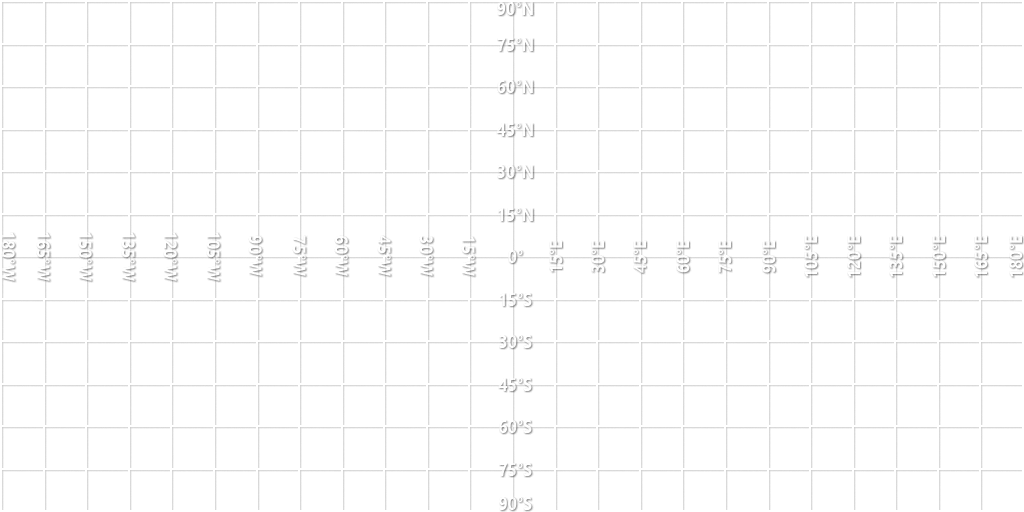
14 Comments
- Log in to leave a comment
-
-
-
21.9k Tallisar1.3 years ago
Well, to start, the "hexagon pattern thing" is a cellular noise on a high frequency. They can be used in a wide variety of things, like storms on gas giants, terrain, surface features, etc., etc. Some popular uses of cellular noise are for creating ice planets or icy regions, whether it is icebergs or mountains. In this instance, I paired it with the general shape noise. I used two noises for the shape (aside from the ridge--it creates the oblateness), with the primary being a Value Fractal and the secondary being cellular. I put it on a high frequency along with some domain warps to give its current effect. I do not know how to make a tutorial for them, mainly because of their wide range of uses. I just explained how and what I used them for. So for a recap, I used cellular noise to create the hexagon-like pattern @67milo.
-
1,150 67milo+1 1.3 years ago
@Tallisar like a tutorial on how to make it look like that hexagon pattern thing
-
21.9k Tallisar1.3 years ago
Can do, but your query is too broad @67milo. There are many aspects when I made this, like oblateness, craters, surface detail, patterns, and many others. To which are you referring (note: "All of them" is an unacceptable answer).
-
-
4,395 Junkthunder+1 1.3 years ago
4 pic be looking majestic !!.
Also crumbly dry Potatoe moon, very nice
-
21.9k Tallisar1.3 years ago
You should check out this moon @Aludra877. Uttekesh is a submoon of Vortís, so if you want to see how the city lights are made, go check that out. The best I remember from making city lights (it's been a very long while) is that it is basically just painted noise. It is typically a high-frequency noise, but I have yet to put this on anything else, as it has been a very, very long time since I tampered with them.
-
25.0k Aludra877+1 1.3 years ago
That 4th pic...how did you get city lights? Pls share lol I need this as I want to do populated systems in the future lol, also really dope roid, also cubic fractal makes roids look crystalline in shape, just as a tip incase u didn't know.
-
-
-
21.9k Tallisar+1 1.3 years ago
Yup, it definitely did not travel through intergalactic space into a different galaxy and just so happened to be headed towards the Traiathad Nebula, where it got captured by the Antarius System, then by the largest planet, and by its third moon. I don't think that happened @deepfriedfrenchtoast... or did it? (Vsauce music plays)
-
11.8k deepfriedfrenchtoast+2 1.3 years ago
So this is what happened to that one chicken nugget that fell under the seat of my car a while ago.

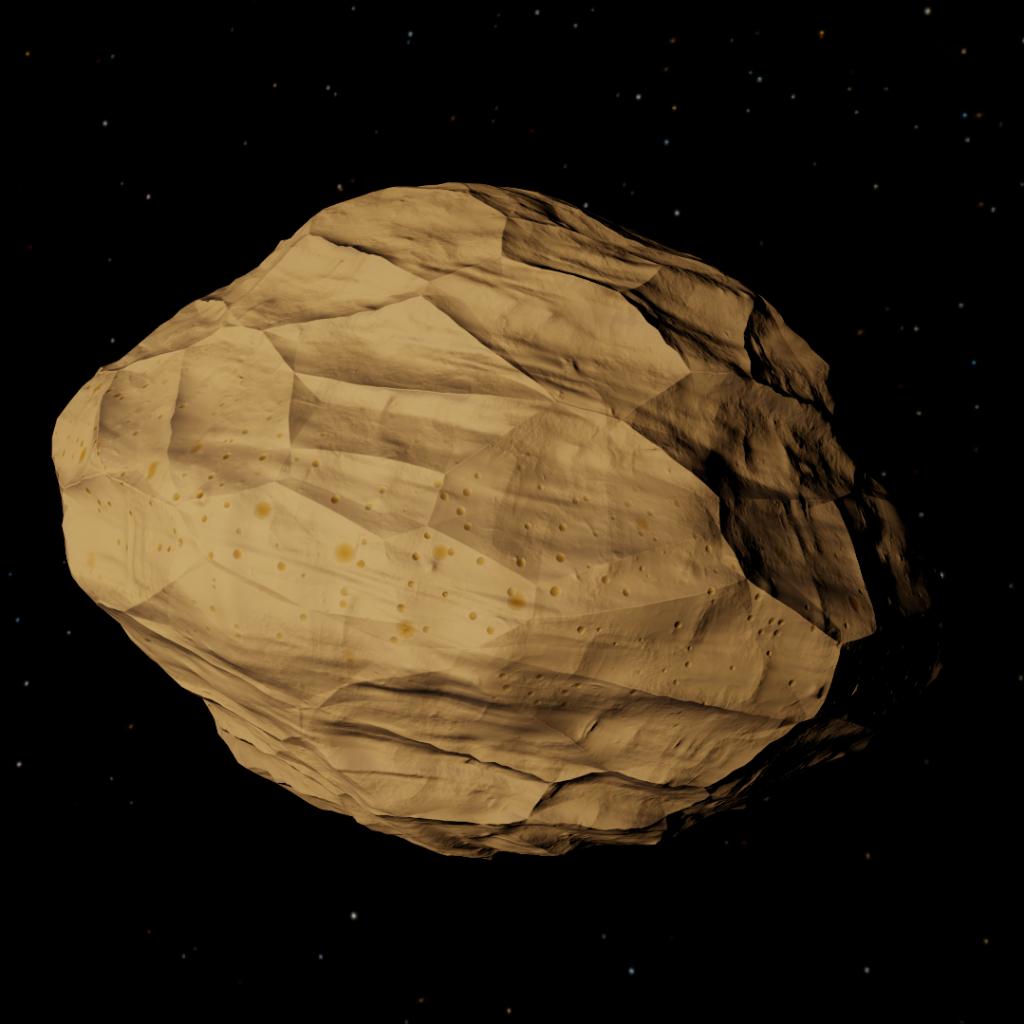
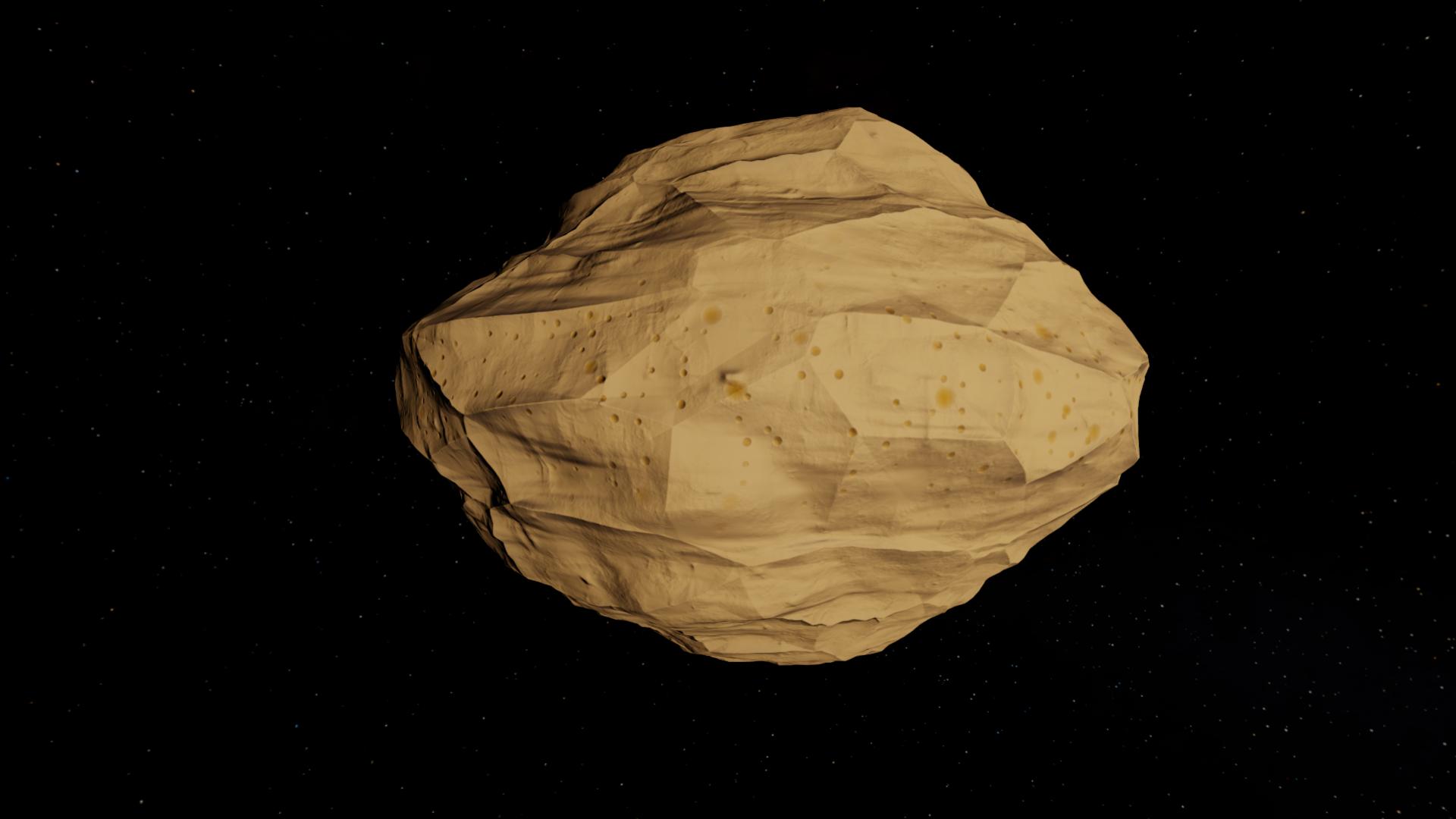
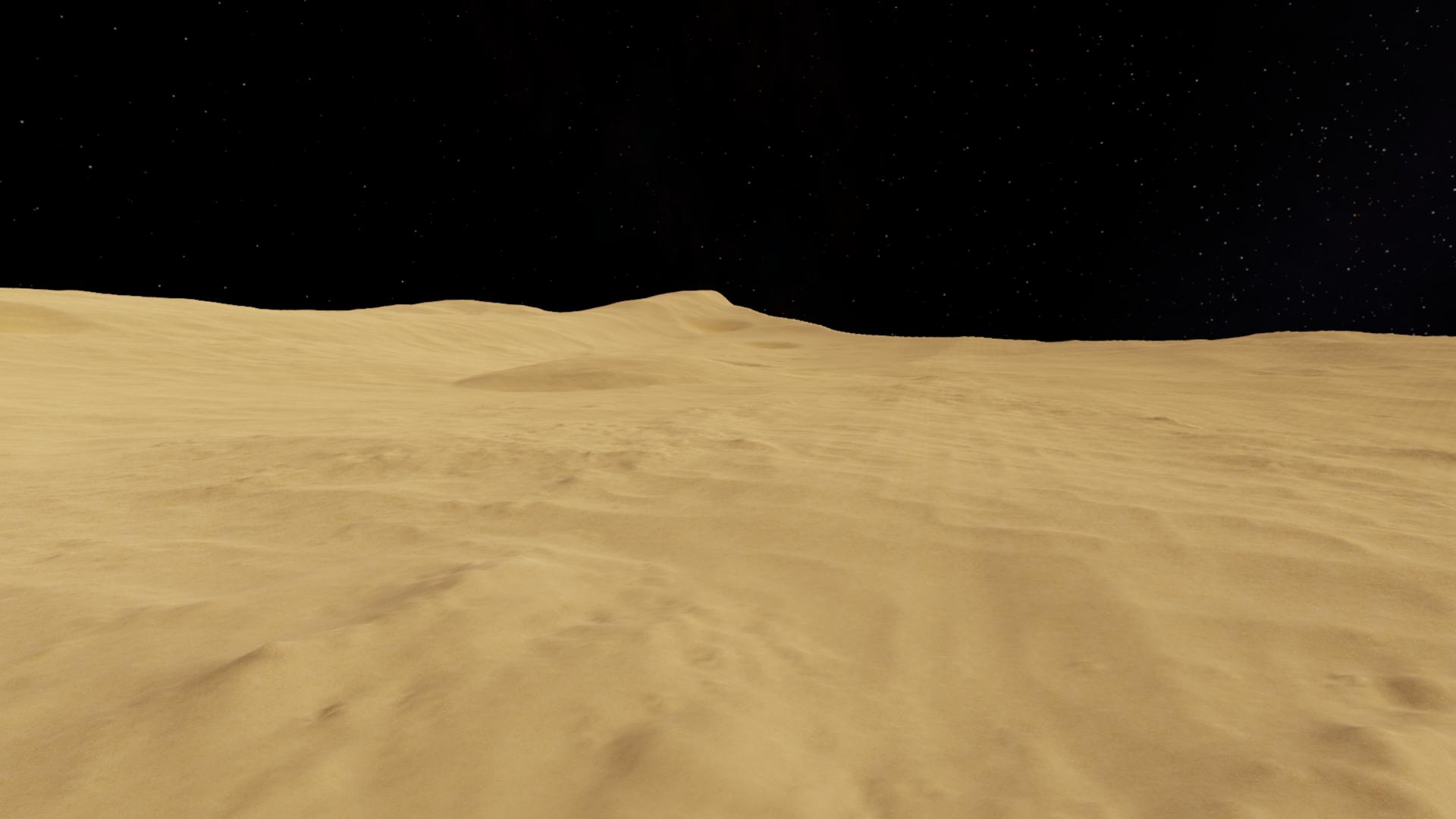
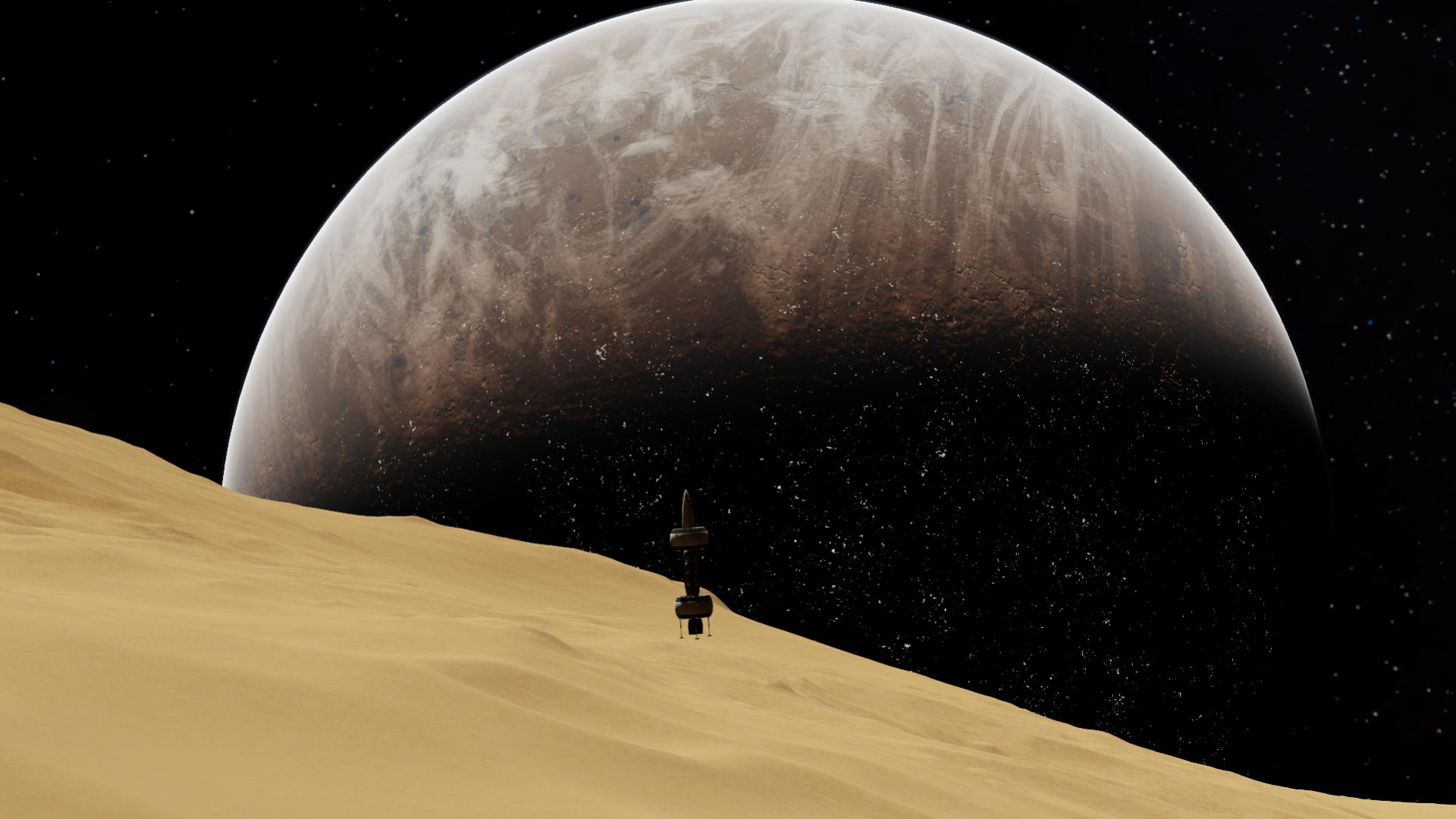
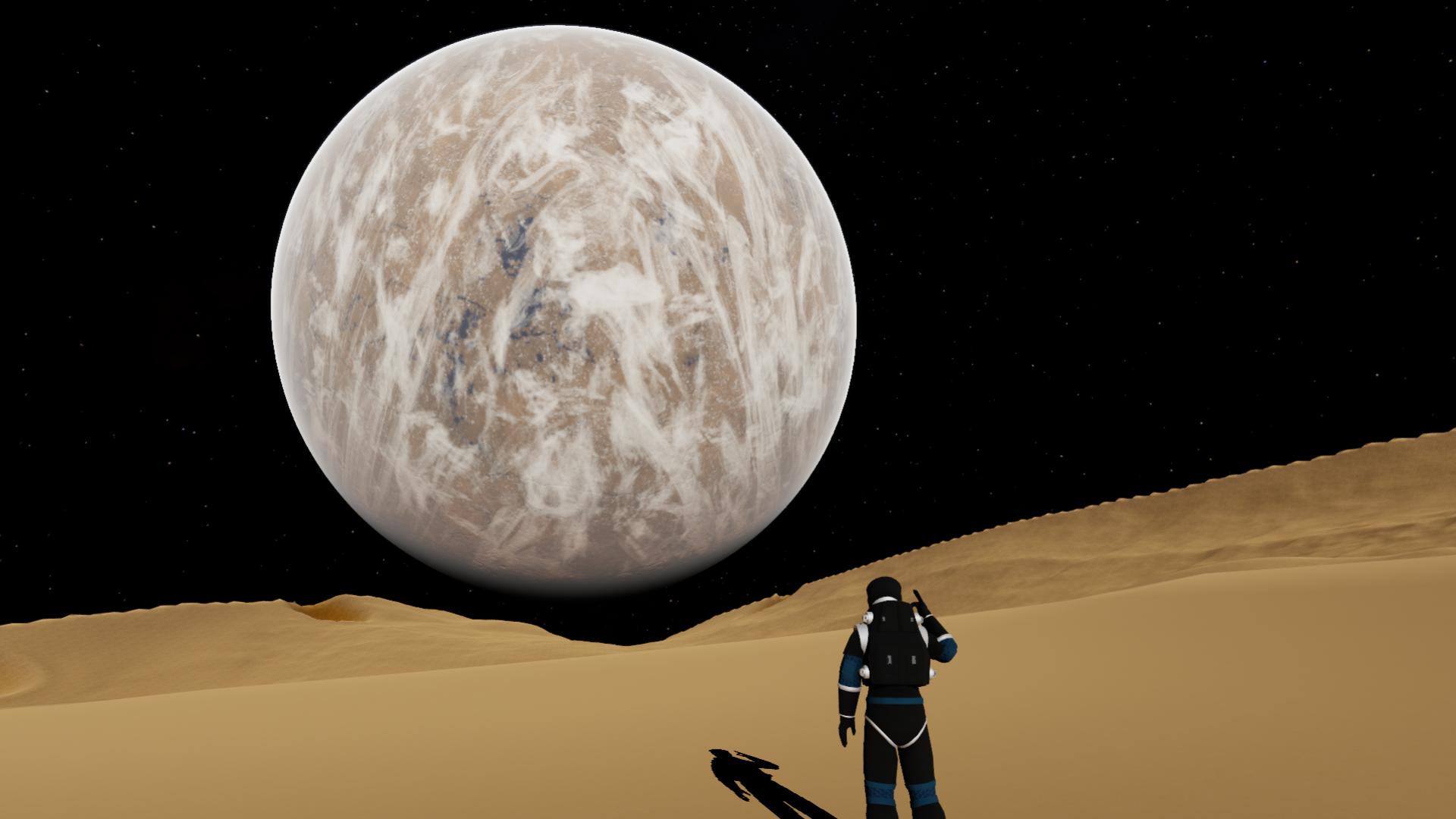
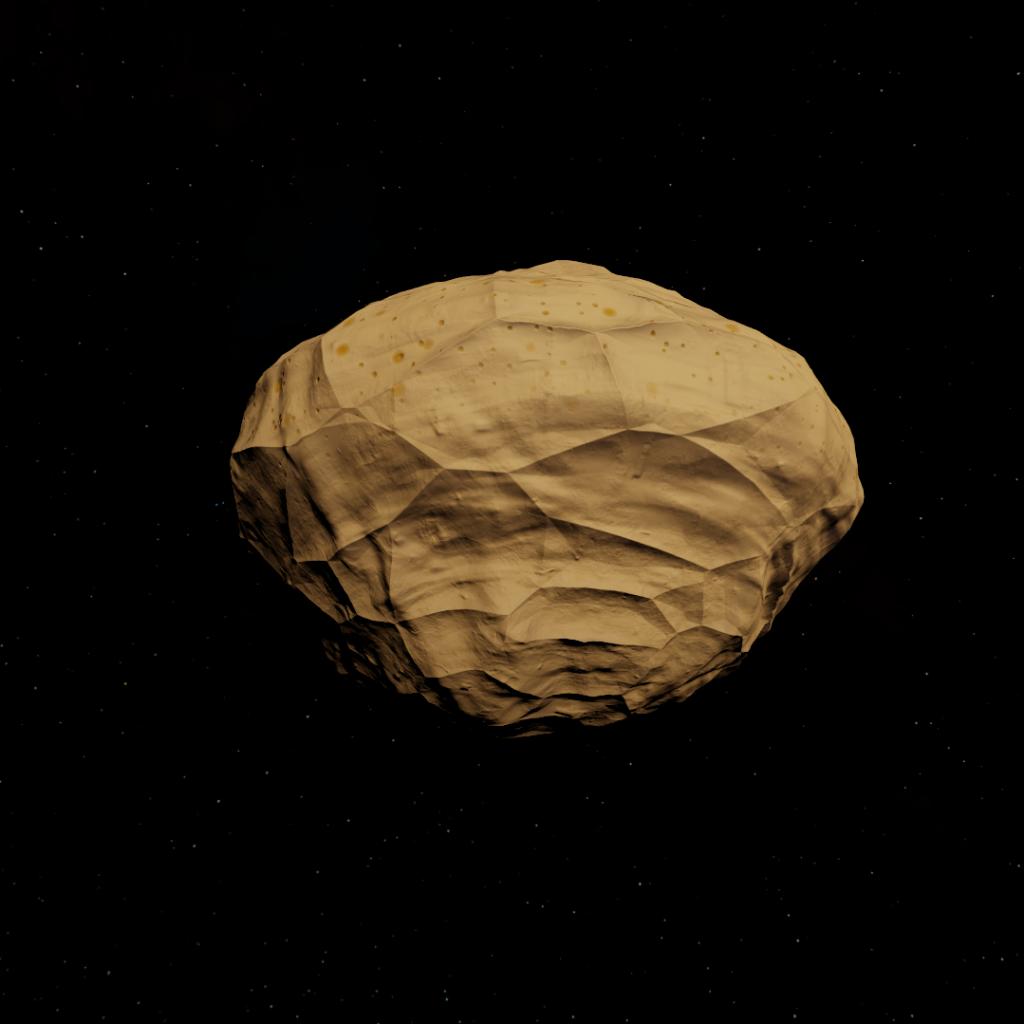
@Tallisar , how do you make them so realistic?